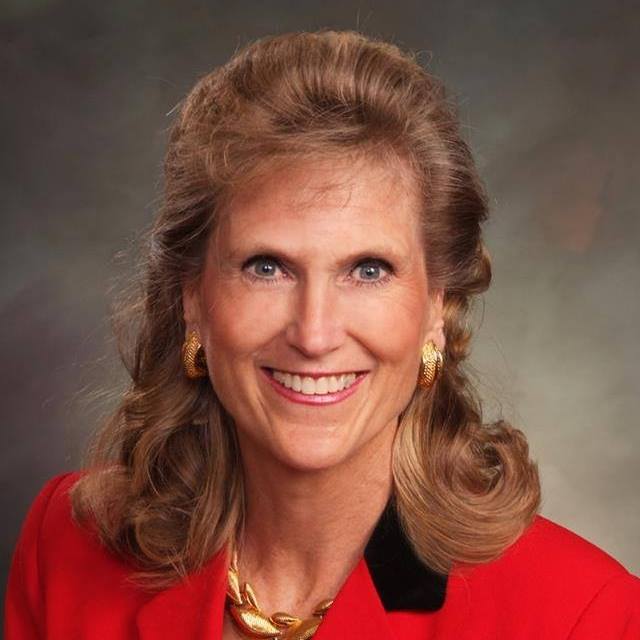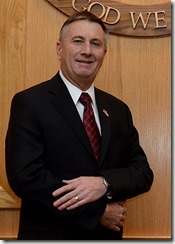GREELEY — After nearly two years of battle over who controls oil and gas drilling permits, Weld County has come to an agreement with the Colorado Oil and Gas Conservation Commission (COGCC) that commissioners say reinforces their ability to control the surface rights within the county and will allow them to move forward with a permitting process that gives some certainty to oil and gas operators.
The issue began in 2019 after a Democrat-controlled state legislature passed Senate Bill 19-181 in direct opposition to what voters decided just months earlier with the defeat of Proposition 112, which was an attempt to put in place setbacks that would effectively kill the industry.
SB 181 made sweeping changes to how oil and gas is regulated in the state, including changing the focus of the COGCC and how it approves drilling permits. The new rules created under SB 181 took effect in January and include 2,000-foot setbacks.
In June 2019, however, Weld commissioners challenged those rules by making unincorporated Weld County an area of state interest, a move that allowed them to exert what are known as 1041 powers, or control over surface regulations, specifically in this case around oil and gas drilling permits. This was followed by a new county code and a new department — the Oil and Gas Energy Department (OGED). OGED was designed to take over the state’s role in permitting wells on unincorporated Weld land.

Commissioners said then that the change was necessary for the economic health of the county, which produces about 90 percent of the state’s oil and natural gas. Weld County is also one of top producers nationally.
According to the state’s website, 1041 powers, which are in reference to House Bill 1041, passed in 1974, allow: “local governments to identify, designate, and regulate areas and activities of state interest through a local permitting process. The general intention of these powers is to allow for local governments to maintain their control over particular development projects even where the development project has statewide impacts.”
Mineral resource areas are included as “statewide areas” under 1041 powers. And an amendment added to SB-181 also strengthened those powers by stating that “each local government within its respective jurisdiction has the authority to plan for and regulate the use of land by … Regulating the surface impacts of oil and gas operations.”
A recent news release lays out a memorandum of understanding (MOU) between Weld and the COGCC. According to Weld County Attorney Bruce Barker, the MOU accomplishes three major issues.
- It establishes a concurrent process for applications to the county (which decides all facets of the drilling process that takes place above ground — including location) and the state (which decides all facets of the drilling process that take place below ground)
- A preapplication meeting process that will help the applicant be assured everything is in place for a likely approval.
- It speeds up the timeline in which applications are approved so that it is in line with Weld County’s time frame.
Barker said the biggest takeaway from the agreement is that it recognizes Weld’s 1041 authority.

“Really in many respects what we understood from SB 181 was by enacting 1041 regulations, it provided a framework to put the MOU together to begin working more closely with COGCC and for us to be full participants,” Barker said. “And in many respects, it’s providing the ability to interject our land use process into the review of the oil and gas location siting decisions. It fits into what 181 provided for local government to be able to participate as we are doing.”
One of the stumbling blocks all along was the rule that set minimum setbacks for drilling pads at 2,000 feet. Although there are exceptions to that rule that allow pads between 500 and 2,000 feet, without exerting 1041 powers approval of those exceptions would be decided by the state, Barker said. Weld’s OGED, which is likely to be much more friendly to the process, now handles all aspects of location.
Commission Chairman Steve Moreno told Complete Colorado this is not an arrangement that occurred overnight. In fact, it took more than a year of negotiations and meetings to come to a consensus. He said former commissioners Kevin Ross and Barbara Kirkmeyer were instrumental in getting this deal done. He also agreed with Barker that the MOU reinforces Weld’s decision to exercise 1041 powers as being the right thing to do.
“Oil and gas is a huge economic driver in Weld County and also provides many jobs for families in the industry. As the state’s leader in oil and gas production, it’s important that we have processes in place that protect our residents while still maintaining local control of our land use process concerning oil and gas,” Moreno said in the news release. “To partner with the state in our permitting process speaks to how far we’ve come since Senate Bill 181 was passed. This effort speaks to the hard work of staff, our county attorney and previous board members, and I’m pleased with the MOU.”
Under the agreement, the Weld County Commission, Colorado Parks and Wildlife, Colorado Department of Public Health and Environment, the COGCC and any other agency involved in permitting agree to meet weekly on Wednesdays to help operators create an application that is likely to get approved. They also agree to work together with residents and other stakeholders throughout the process to make sure all the proper safety procedures are in place.

Finally, they agreed to streamline the process, so that the COGCC director sends feedback to the county within 28 days of an initial site referral and will not make a recommendation to the commission until Weld County has sent back its final referral.
Barker said everyone might agree or they might not, but the goal is to talk it through in a timely manner so they can collectively come up with the best location for drilling.
“This gives us structure,” Barker said. “It allows for cooperation and collaboration about siting and process between the operators and all the agencies involved.”
Commissioner Mike Freeman added it reaffirms Weld County’s role in oil and gas matters.
“The state realizes Weld County knows what it is doing when it comes to our permitting process,” Freeman said in the news release. “… At the end of the day it’s a huge benefit to the energy industry, our economy and to the citizens of Weld County.”
Commissioner Perry Buck said the agreement gives industry operators the faith they needed to move forward with drilling in Weld.
“This agreement is big for Weld County as it provides oil and gas operators certainty and assurance in our permitting process,” Buck said. It “shows we’re quite capable of establishing guidelines that protect health, safety and welfare of our residents, provide energy exploration opportunities and strengthen Weld County’s economy.”


